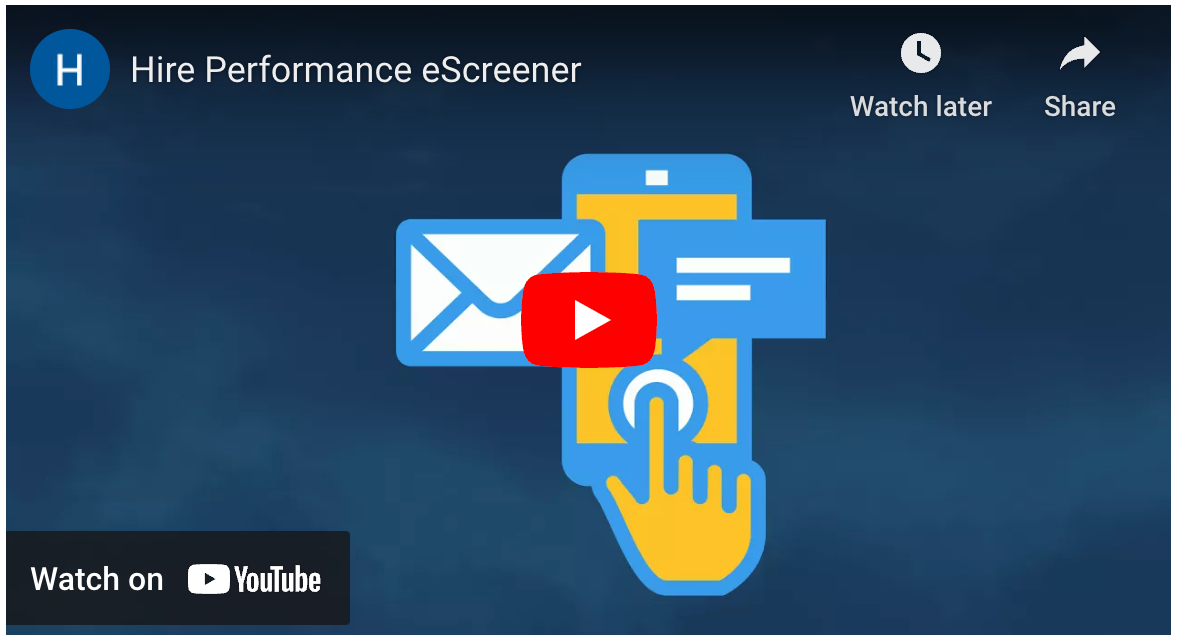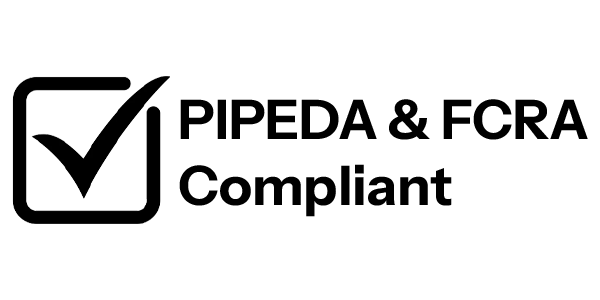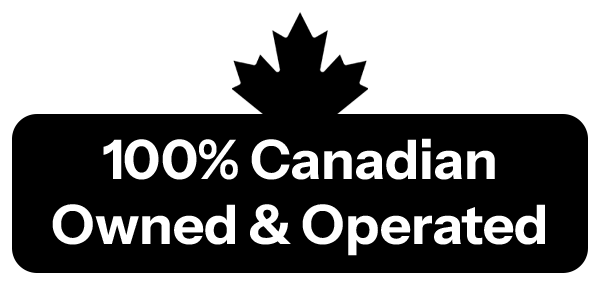An Easy Guide to Canadian Employee Background Checks
Tim Hardie • October 31, 2022
Background checks are essential to hiring the right people for your business. They’re a valuable tool used to verify provided information and identify any problem areas that may affect employment decisions.
Performing a background check in Canada can help ensure you only hire the best candidates with the right qualifications and a problem-free criminal or credit history. Keep reading to learn everything you need to know about Canadian employee background checks.
What is an Employee Background Check?
Sometimes known as a pre-employment screening, background checks help employers;
- Verify the Candidate's information
- Learn about the Candidate
- Make more informed hiring decisions
- Protect your team and organization
Background checks are a standard business practice in Canada. They’re a widely used tool that helps employers make sure they hire the right people, and many Canadian businesses view them as required to confirm legal identities.
Why Do I Need Background Checks?
The purpose of hiring is to find the right people to bring on board to improve your business. Background checks are essential to the hiring process as they provide verified information about a candidate. On top of validating the candidate’s legal identity and work status, they also validate other information and uncover any potential problems you should know about.
When Can I Conduct a Canada Background Check?
Overall, you can only conduct a background check once you’ve made a conditional offer of employment. However, the candidate must consent to some types of background checks, which we’ll discuss more below.
Are Background Checks Legal?
Background checks involve providing employers with a substantial amount of personal information. For candidates’ protection, there are laws in place that dictate how this information is collected and stored. You can view Hire Performance’s privacy policy here to learn more.
The Federal Privacy Act and the Freedom of Information and Protection of Privacy Act discuss the legalities and requirements of background checks. In addition, any federally regulated employer must also follow the Personal Information Protection and Electronic Documents Act.

Common Types of Employee Background Screenings
You may wish to conduct a background check in Canada, but what exactly does that entail? There are many types of pre-employment checks to consider, some of which may be required based on your industry.
Education Background Checks (Education Verification)
If the candidate provided any education information, such as a degree from a university, this type of background check will verify their education qualifications. This type of screening is straightforward and involves requesting a transcript or otherwise verifying the accuracy of the provided information.
Employment Verification (Professional Background Checks)
An employment verification or professional background check only verifies that the candidate was employed at the company and the timeframe of their employment. It does not involve asking questions about work performance.
Employment References Checks
This type of check may seem similar to an employment verification check, but instead of verifying work history, you’re validating the references the employee provided. You’ll be able to talk to their previous (or current) boss and ask questions about workplace performance, behaviour, and other work-related topics.
While not required, it’s good practice to have a standard set of questions for every candidate to ensure consistent results and help you get to know your candidates.
Credit Checks
Most industries will not require a credit check, but they’re permissible for any type of employment. Financial institutions and other roles that call for working with sensitive data will often conduct a credit check.
Be aware that you must provide candidates with written notice of a credit check beforehand. Along with all services in a background check, credit checks should only be conducted after an official conditional employment offer has been made.
Driver’s Abstract
Similar to credit checks, driver’s record checks or driver's abstract, will not be necessary for many industries. However, they’re standard practice for any position involving driving, such as trucking and sales positions in which the employee will use a company vehicle.
Canadian Criminal Record Checks
Criminal record checks are common but not always necessary. However, any employees working with vulnerable populations, such as children, the elderly, or the disabled, will typically require a criminal record check.
There are three different types of criminal records checks:
- Criminal Record Checks (CRC): This check provides a basic summary of criminal convictions.
- Police Information Checks (PIC): While a CRC only covers convictions, a PIC will uncover any discharged or outstanding charges. In Canada, these are often referred to as CPIC - Canadian Police Information Check.
- Vulnerable Sector Check (VSC): As the most comprehensive type of criminal check, you require a vulnerable sector check online in Canada if your business works with the elderly, the disabled, or in child care. A VSC will provide the same information as the previous two types, along with any sexual offence convictions and additional details.
Employers conducting criminal records checks may encounter human rights or privacy issues, meaning they should only be conducted when necessary for the candidate’s potential role. You should also be aware that you cannot discriminate against candidates who have a convicted offence unless you can prove that the offence will directly impact the candidate’s work performance or safety.
Social Media Checks
It’s permissible to check a candidate’s social media accounts to inform hiring decisions. Additionally, while some limits apply, you can screen social media accounts at any point in the hiring process, even before an offer letter has been made. A candidate’s social media activity will provide insights into who they are as a person, which can be invaluable during the hiring process.
However, it’s wise to consult a legal expert to ensure you work within the law to avoid any discrimination or bias issues.
Partner with Hire Performance for Rapid and Accurate Background Checks
Background checks don’t need to be complicated. Instead of navigating the legal restrictions and requirements yourself, partner with one of the best background check companies in Canada — Hire Performance Inc.
Our years of experience working with Canadian companies has given us valuable insight into the different types of background checks you’ll require. We put all of our knowledge and experience into our easy-to-use online screening tool, eScreener.
Ready to experience rapid and accurate background screening results? Try eScreener for free today!
Call or Get Started Now.

Industry Leading Technology for Background Checks & Screening
eScreener uses Kount Identity Verification™ technology to verify identity with confidence. This technology cross checks applicant information against Equifax and 3rd party data sources to validate an identity and to determine whether that identity has been reported as misused or associated with potential fraudulent activity. This is done in real time by accessing millions of records, providing instant results in our eScreener.
WHY CHOOSE HIRE PERFORMANCE?
Pre-Employment Screening Benefits
Our industry leading expertise and cutting edge technology help organizations detect potential risks such as resume fraud, criminal convictions, and past terminations.












